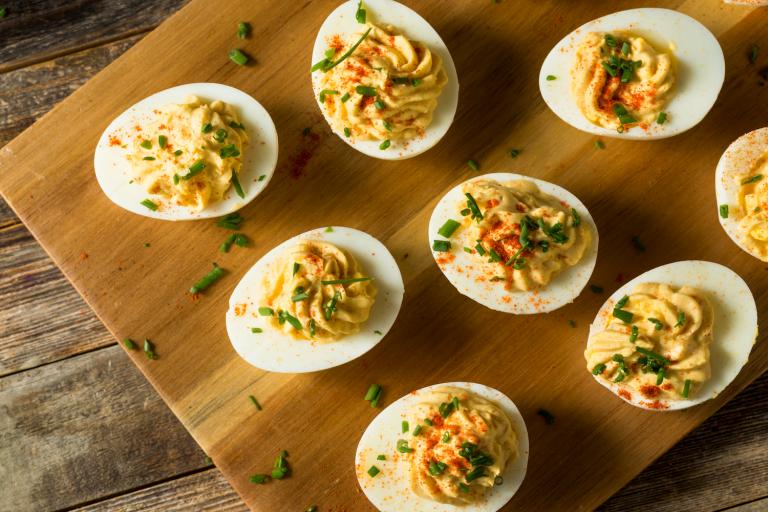Egg fads of decades past include the steak-and-egg diet popularized by bodybuilder Vince Gironda in the 1950s and the egg-and-wine diet that appeared in the 1962 book Sex and the Single Girl by Helen Gurley Brown.
Vogue jumped onboard in the seventies, and wine and eggs garnered popularity. But that’s history, and this is a new century. The egg is traveling solo now as the star of a hard-boiled egg diet.
Nutritional Benefits of Eggs
-
Good Source of Protein
With a high protein content (6 grams) and only 78 calories, a hard-boiled egg is nutritious.
-
Metabolic Booster
Because of their protein, eggs require extra calories to digest. This can boost your metabolism, one key to weight loss.
-
Make You Feel Full
Eggs make you feel full longer. Compare hunger pangs at 10 a.m. if you’ve had just a slice of toast for breakfast, with how you feel if you’ve had eggs.
The Basic Hard-Boiled Egg Diet
While there are many variations, the egg diet consists of having eggs with certain fruit for breakfast and eggs or another lean protein with low-starch veggies for lunch and dinner, according to Erin Palinski-Wade, RD, a dietitian and certified diabetes care and education specialist.
Restrictions on the Egg Diet
“Grains, dairy, and fats are all off limits,” she says.
According to nutritionist Keri Gans, MS, RD, specific no-nos of the hard-boiled egg diet include:
- processed foods
- high-carb vegetables
- potatoes
- corn
- beans
- sweet fruits
- bananas
- dried fruits
- pineapple
- sweetened drinks (even fruit juice!)
Is an Egg Diet Healthy?
While it can help you lose weight, it’s not a long-term solution for maintaining a healthy nutritional profile and keeping weight off.
Like most fad diets, this one is unbalanced, according to Greg Hamilton at the University of Florida.
Lack of Fiber
"While eggs are “high in protein and low in calories,” he says, “they contain virtually no fiber, so your body loses out on that digestive aid.”
Dietary Restrictions
A boiled-egg diet may jump-start weight loss, but the restrictions that “make it difficult to follow long term also make it challenging to meet your nutritional needs,” says Rachael Link, MS.
There’s a risk of nutritional deficiencies from the elimination of entire food groups, and lost weight may come back.
Consult a Professional
Check with your healthcare provider and a dietitian. They can help you decide whether this diet is the right one to start you on your way to meeting your weight-loss goals.

